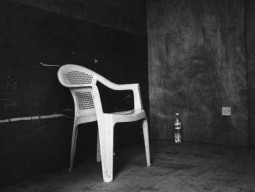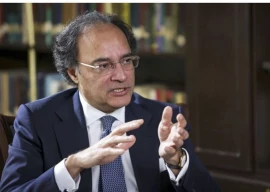
ABBOTABAD: Employing modern technology and capacity building along with facilities for the police can help achieve the goal of torture free investigation, observed participants of a session held for the police force in the city on Thursday.
Human Development Organisation (HDO), a civil society organisation working for rehabilitation of victims of custodial mistreatment and torture in Hazara, arranged the session at Police Lines. District Police Officer Muhammad Ali Gandapur and Superintendent Investigation Shah Nazar Khan along with inspectors, sub-inspectors, assistant sub-inspectors, head constables and policewomen from different stations participated in the event.
Putting forward collective suggestions regarding torture during investigation, they added forensic laboratories at district levels, easy access to mobile data and training of policemen could help in the collection of evidence before the arrest of an accused. The participants said such methods would help achieve targets in line with international conventions on human rights.
Favouring legislation against torture and collection of evidence before arrest, they stressed the police force should be free from political intervention and bound to submit a charge sheet for a case within 14 days.
Addressing the gathering, Human Rights Commission of Pakistan District Coordinator Madni Ejaz Jadoon said persons detained over criminal charges were equally entitled to the same respect and should never be subjected to inhumane treatment as stated by the United Nation’s Convention Against Torture (UNCAT). UNCAT was brought into effect across the world on June 26, 1987.
Jadoon added Pakistan ratified UNCAT in June 2010 which stipulated the country to revise its legal system in line with the convention. Referring to difference clauses of the UNCAT, Jadoon said instability in the country or war cannot be used to justify torture. He added that any statement obtained by employing torture tactics was not admissible in the court of law.
A psychologist working with HDO, Dr Sahira Khan, shed light on methods of torture commonly used at police stations and jails. She also elaborated on the physical, mental and social impact of custodial abuse on the detainees.
She claimed underprivileged classes were most exposed to such mistreatment which promotes recidivism.
Also speaking on the occasion, District Police Officer Muhammad Ali Gandapur said as per the directions of K-P IGP Nasir Ali Khan Durrani, the police department is being revamped in a way that torture and mistreatment of detainees is brought to an end.
Pledging to discourage unnecessary use of force, Gandapur asked the organisers to arrange capacity building sessions for the police in order to enable them to obtain training along modern lines.
Published in The Express Tribune, March 28th, 2014.














































COMMENTS
Comments are moderated and generally will be posted if they are on-topic and not abusive.
For more information, please see our Comments FAQ